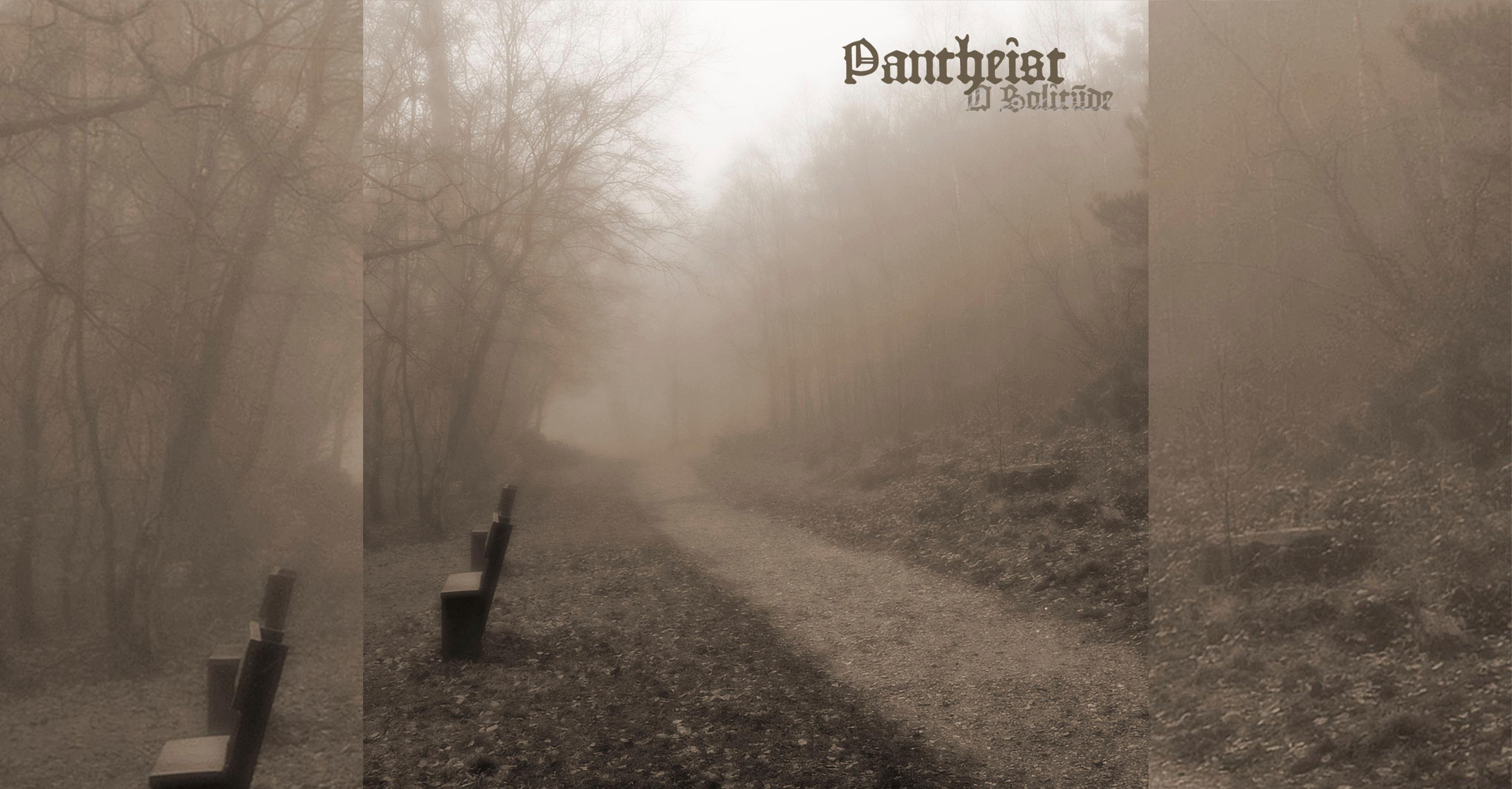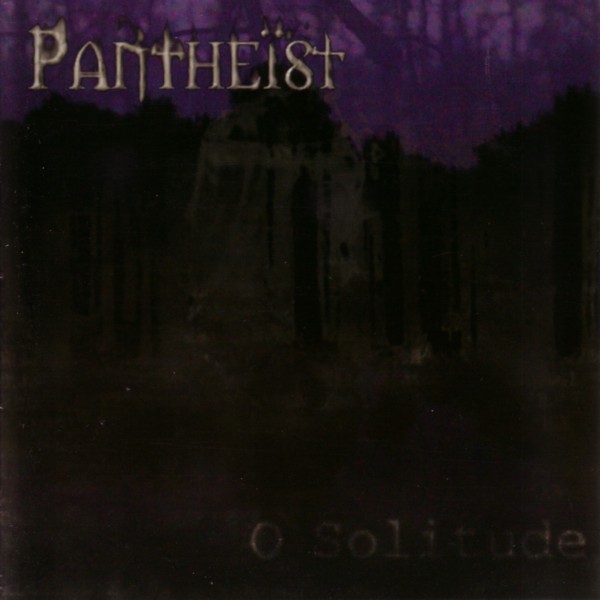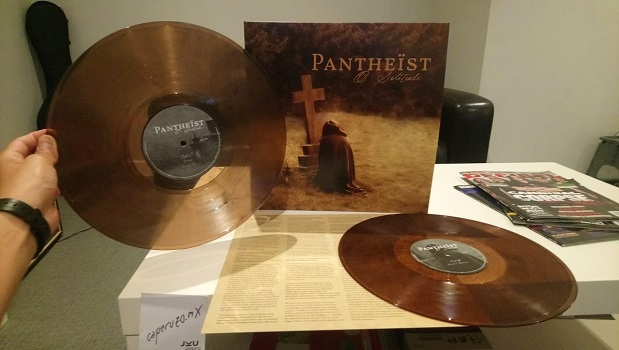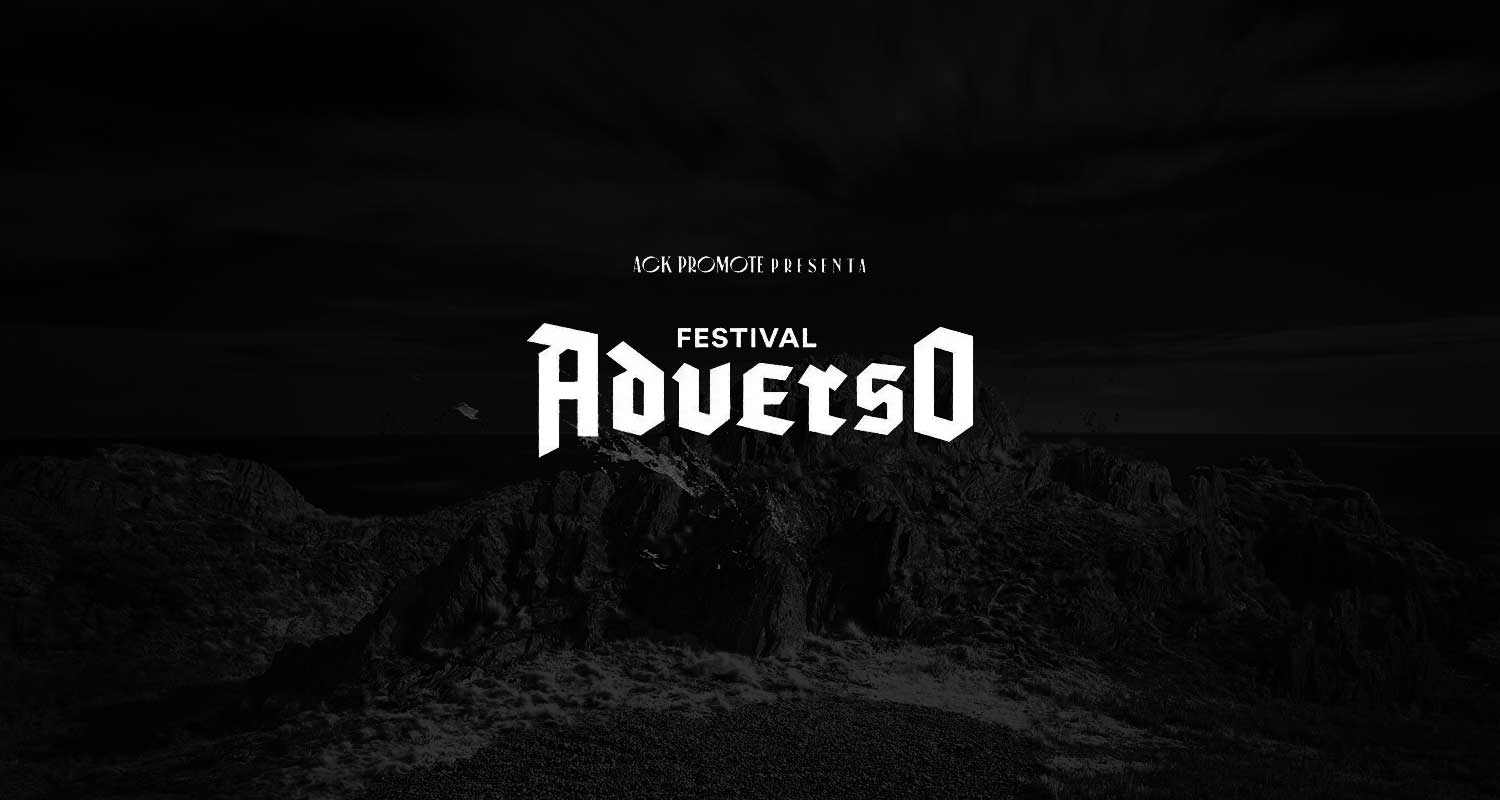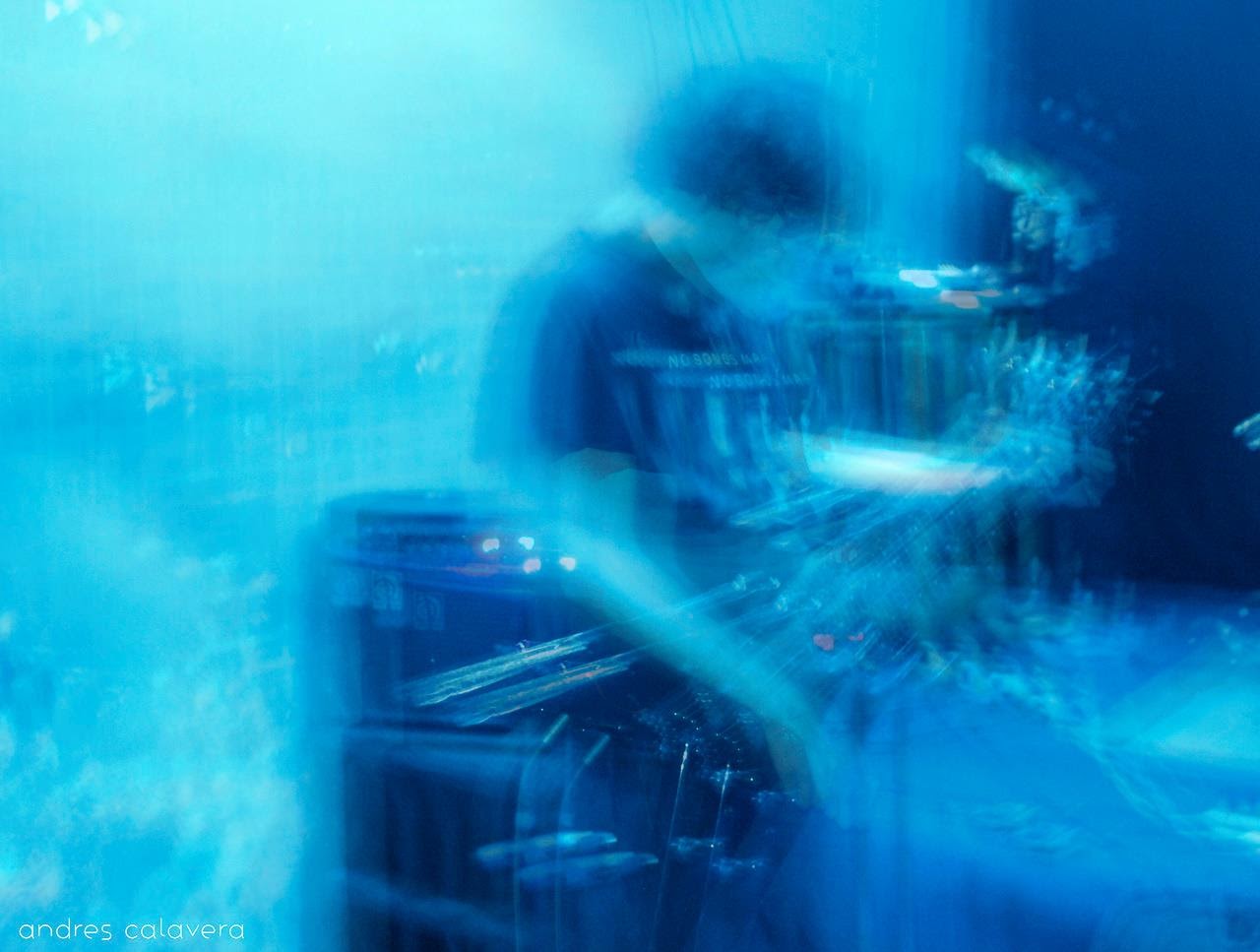“Interesting, I don’t know if I dig it, but it’s interesting”, explains a most-likely drunk chap to his mates as they leave The Garage after Finnfest 2020 had finished. Skepticism wrapped up the festival that evening, in what was the last gig I ever attended. Kind of out of the blue, the legendary godfathers of funeral doom metal were commissioned to headline a line-up that was clearly dominated by death metal. Skepticism were handed over a crowd that had been moshpitting for the last 6 hours. The precise solos, the fast drumming, and the furious riffs of Purtenance were suddenly interrupted by a loud church organ, fluffy drumsticks, and slow single-guitar sound. The contrast was crystal clear. And although Skepticism delivered a top-notch performance that night, it is in this kind of incidents that you remember how much of a misfit funeral doom is among the other metal subgenres. Widely considered an interesting listen rather than truly a pleasure, funeral doom bears the reputation of a lacklustre genre. The interesting experience may become quite a nerve strain after two 17-minute tracks of downtempo drumming.
Then you have to wonder how do you stand out in a genre that wears such strict a uniform? And, most importantly, how can you swerve tediousness with these few tools you’re given? Turns out funeral doom metal is not different to many artistic expressions, and in this genre everything boils down to inspiration. Funeral doom is the perfect venue for channeling all type of negative feelings that can sting human misery. And there is a particular album that, fully inspired by solitude and loneliness, ticked all possible boxes for turning that “interesting” experience into a gorgeous appreciation of melancholy. This album proves that funeral doom can be made in a skillful way, with songs that stick and are well-structured. The album I’m talking about is Pantheist’s first debut LP O Solitude.
Sponsored by the defunct doom metal powerhouse Firebox Records, O Solitude was released in 2003 to a world in which death metal was buried deep, and the grave for nu-metal had already been dug. By the third year of the millennium, funeral doom metal albums had already been sitting at the far corners of the CD shelves for around a decade. Skepticism and Thergothon had jointly been granted the patent of the genre’s invention. Nevertheless, the microgenre was even smaller than nowadays. Names like Esoteric, Funeral, Shape of Despair and Mournful Congregation had already amassed a rather small group of very peculiar fans. By 2003 it was clear that, although already defined and established, the genre was never going to take off. Funeral doom was sentenced to be buried in the underground beneath layers and layers of appealing fast riffs, blast beats and Satanic lyrics. Although there’s no such thing as an heyday of funeral doom, I really consider the days in which Firebox Records took over the genre a golden era not only for funeral doom, but for the whole underground doom metal scene. The obscurity of these bands along with the scarce number of them dwelling MySpace added an extra element of mystery to the subgenre.
Originally a duo consisting of Kostas Panagiotou and Nicolas Tambuyser, Pantheist was at the time operating in Belgium. It comes with no surprise then that in such a tiny scene, Pantheist had close ties with Belgian multi-instrumentalist Stijn Van Cauter, whose unique ambient approach to funeral doom in his project Until Death Overtakes Me can closely be related to Pantheist’s original idea of a more symphonic-oriented sound. Before the duo evolved to a quartet and O Solitude was materialised, Pantheist presented a demo that included one of the most visceral pieces of doom metal ever recorded, the funerary dirge ‘1000 Years’. Pantheist’s intentions were clear: the church organ should play a key role in their compositions. Kostas Panagiotou, who led the project since its first incarnation, was in charge of the keyboards and vocals duties. Hence, Pantheist would play with these two elements more than with anything else. In contrast to Skepticism, Pantheist’s sound transports you to a church, a burial service in a church, to be precise. An atmosphere that might be closer to that of Ras Algethi or early Tristitia.

The intense reek of incense, the dim light from the candles, the heavenly feeling of walking towards the vast choir while surrounded by cenotaphs… All that can be pictured while listening to O Solitude. I might put off some readers here as it’s easy to conclude we’re describing a symphonic gothic metal band of the likes of Tristania and Therion, whose abuse of orchestral elements fairly won them a reputation of cheesy acts. Fear not, Pantheist’s formula is totally different. While unquestionably relying on the church organ, the song-writing has a more funerary approach than anything else. The drums, sluggish enough to meet the genre’s requirements, mark the tempo of this march. Their scarce beats per minute in ‘Envy Us’ notwithstanding, drums dare to venture in a few blast beats moments through the album, which are ingeniously placed in the complex compositions.
This particular aspect of O Solitude is what makes it stand out so clearly from the pile of run-of-the-mill funeral doom metal CDs. Pantheist borrows inspiration from classical music whenever they see the opportunity. “Listen to more classical music and less funeral doom metal”, I blurrily remember Kostas Panagiotou advised on social media a while ago. It’s not enough to note that the arrangements in ‘Envy Us’ are based on an ingenious mash-up of Chopin’s ‘Prelude Op 20’ and Beethoven’s 7th symphony; melody composition is in fact key in the entire album. And this is where the vast majority of funeral doom metal albums fail in impressing a non-depressed stranger to the genre. How many funeral doom albums do you know in which the melodies of each song stick? Apart from O Solitude, I would only throw in the basket Funeral’s Tragedies (1995), Mournful Congregation’s The Monad of Creation (2005), Esoteric’s Subconscious Dissolution into the Continuum (2004), and Skepticism’s Lead and Aether (1998). For these albums, the 17-minute ordeal that may represent not touching the skip button, turns into a thriller as you discover the song’s evolution.
But saying that Pantheist were simply meticulous when writing melodies and structures of each track would be unfair. Panagiotou’s song-writing also sounds utterly natural and, hence, effective in its message. The bereavement character of the album is perfectly depicted melody-wise in the opening verse sections to ‘Don’t Mourn’, ‘Time’, and ‘Curse the Morning Light’. Led by the organ, and following purely mournful melodies, these verse sections are unique examples of perfection in the execution of funeral doom metal.
Its incomparable melodies notwithstanding, O Solitude raises eyebrows and drops jaws because of its unique and weirdly alluring vocals. Aiming to achieve a burial service atmosphere, Panagiotou delivers doubly tracked vocals which, with the slow changes in their arrangements, give the goosebumps throughout the album. However, the vocals heard on O Solitude have no operatic purposes. Instead, they sound like chants of some liturgical purpose. This was quite an innovation at the time. Vocals in funeral doom are still nowadays highly dominated by deep growls. Gothic doom acts Virgin Black, Tristitia and Ras Algethi, as mentioned above, experimented with church-like vocals before. However, for me it was this type of vocals what I found utterly fascinating about funeral doom when I discovered the genre. Eventually, for their second LP Amartia (2005), Pantheist would team up with Andy Semmens, who at the time was drummer to Esoteric. He would add tenor vocals to Pantheist, resulting in a very effective church experience. This type of experiment can also be found in the one-off masterpiece A Tragedy’s Bitter End, by Fallen, a side-project of Norwegian pallbearers Funeral. Funeral themselves should be mentioned here as Frode Forsmo blessed two of their albums with his spine-shaking operatic vocals, although by the time these albums were written, Funeral had already departed funeral doom metal for good.

Panagiotou alternates his double-track chants with desperate growls through which he screaming his sorrow out. The result is effective at all levels. The fact that one can understand most of the lyrics in the clean sections, reveals yet another striking aspect of how O Solitude was written. Despite the dense liturgical atmosphere, lyrics don’t lean towards the gothic side – obscure biblical references or any abuse of poetic devices that could earn the album a cheesy reputation are not found here. You don’t have to follow the lyrics with a bible in one hand and a copy of Ye Olde Old English Dictionary in the other to decipher the real message. Instead, being dedicated to “those who have felt the sting of solitude”, O Solitude is blunt and describes the very relatable experience of a solitary life. Just take a look at one of the most desperate parts of the album, a snippet from ‘Curse the Morning Light’:
My life a ruin, it has ruined me
I smell my soul rotting;
it fades away with the years
O bastard life, for too long you fooled me
You made me believe that you’re worth to live
A growing fury, a growing pain
Enveloped my soul, paralysed my heart
Love is a lie, hope is a morbid joke
Every day the same old song
So, is Pantheit’s O Solitude the best funeral doom metal album ever recorded? At the end of the day, it comes down to each listener’s experience to decide. To this hack’s ears, the album should share such a bold badge with Esoteric’s Subconscious Dissolution into the Continuum. Above, I presented irrefutable evidence of the album’s uniqueness. To wrap up this in a little neat package, I would like to ask again questions like “for how many funeral doom metal albums do you remember the melodies of each song?”, “in how many albums in the genre can you actually sing along the lyrics?”, and “how many of them show a perfect balance between slowness and heaviness, and melody and composition?”. The answers to these questions will definitely narrow down to no more than three albums, in which for sure O Solitude must be included.
Unfortunately, O Solitude remains an incredibly underrated album, even inside the already niche subgenre. I keep on seeing lists of “the best 10 funeral doom metal bands in the world! [skull emoji]”, which unfairly fail to feature Pantheist. Truth is, O Solitude is an album that can be enjoyed even by people who found other bands in the genre a bit boring. Thus, I would like to recommend this album to the drunk chap who didn’t get into Skepticism in Finnfest 2020. O Solitude is a good introduction to the genre, if you will.
As for the whereabouts of Pantheist, the project moved to the UK, with Kostas Panagiotou remaining the only constant member joined by a pretty much rotating line-up. The band would then explore rather unknown lands with a special inclination towards a more progressive sound. Considering the sheer gloom surrounding their second LP, the combo O Solitude + Amartia must be always served together, like tea and biscuits. Also important to listen to their less orthodox material, like the 2011 heart-breaking ballad ‘Be Here’, for which I recommend having a Kleenex box ready. The band is currently in the studio recording their sixth full-length album. Recently, Spanish doom metal devotees The Vinyl Division, who have done an incredible job pressing the wax for many important underground doom albums, released the first vinyl edition of O Solitude. We hope this re-release serves as a reminder of how different O Solitude is to anything else ever done.
– PABLO CUSTODIO
.

